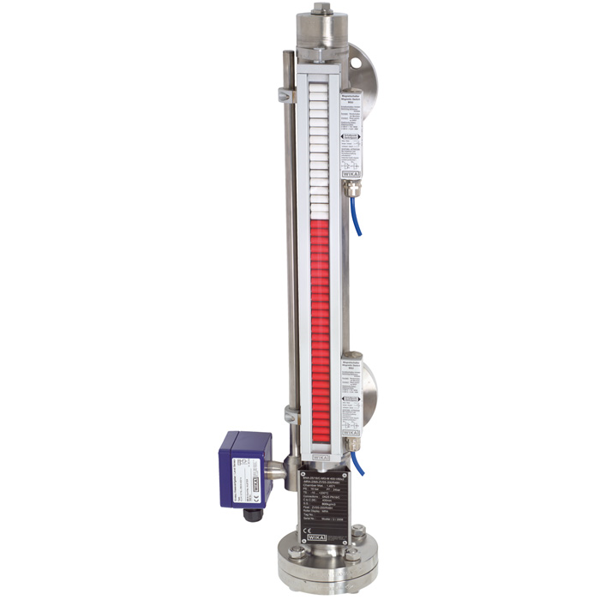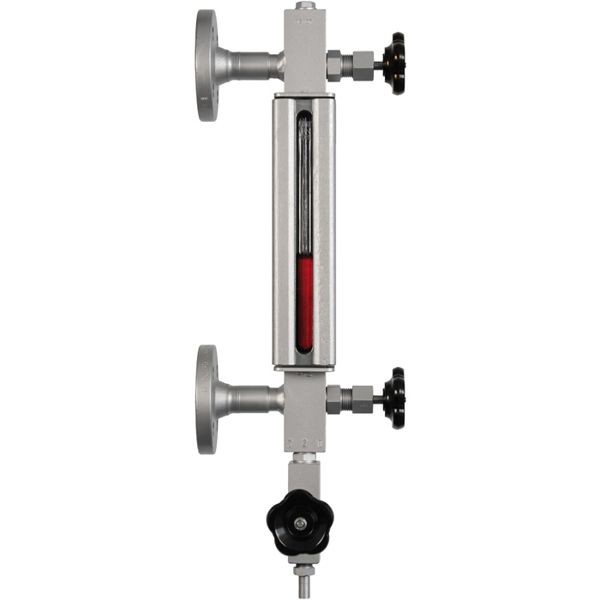Applications of the level gauge:
- Continuous level indication without power supply
- Indication of the level proportional to height
- Individual design and corrosion resistant materials make the products suitable for a broad range of applications
- Chemical, petrochemical industry, oil and natural gas extraction (on- and offshore), shipbuilding, machine building, power generating equipment, power plants
- Process water and drinking water treatment, food industry, pharmaceutical industry
Special features of the level gauge:
- Process- and system-specific production
- Operating limits:
- Operating temperature: T = -196 … +450 °C
- Operating pressure: P = vacuum to 400 bar
- Limit density: ρ ≥ 340 kg/m3
- Wide variety of different process connections and materials
- Mounting of level sensors and magnetic switches possible as an option
- Explosion-protected versions
Description of the level gauge:
- The level gauge model BNA consists of a bypass chamber, which, as a communicating tube, is connected laterally to a vessel via at least 2 process connections (flanged, threaded or welded). Through this type of arrangement of the level gauge, the level in the bypass chamber corresponds to the level in the vessel. The float with a built-in permanent magnetic system, which is mounted within the bypass chamber, transmits the liquid level, contact-free, to the magnetic display mounted to the outside of the bypass chamber. In this are fitted, at 10 mm intervals, two-coloured plastic rollers or stainless steel flaps with bar magnets.
- Through the magnetic field of the permanent magnetic system in the float of the level gauge, the display elements, through the wall of the bypass chamber, are turned through 180°. For an increasing level from white to red; for a falling level from red to white.
- Thus the level gauge clearly displays the level of a vessel without power supply.





